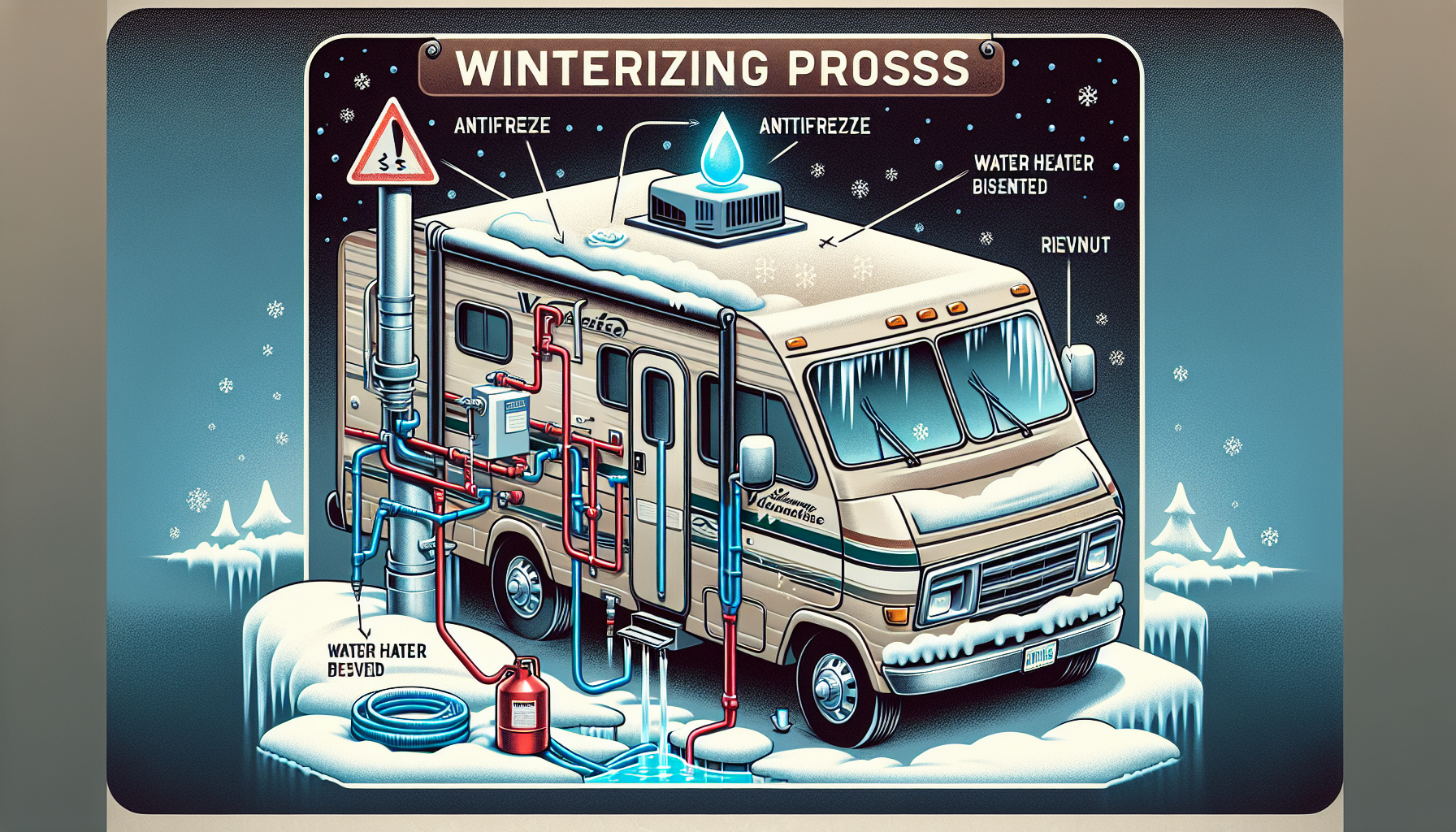Your cart is currently empty!

How Do I Winterize And Store My RV For The Season?
How Do I Winterize And Store My RV For The Season?
You may be wondering, “How do I winterize and store my RV for the season?” It’s important to properly prepare your RV for the winter months to prevent any damage and ensure it’s ready to hit the road when the weather warms up again. In this article, I’ll guide you through the process of winterizing and storing your RV to keep it in top condition.
Why Is Winterizing Your RV Important?
Winterizing your RV is crucial to protect it from the harsh winter conditions that can cause damage to the plumbing system, appliances, and overall structure of your vehicle. By properly winterizing your RV, you can prevent costly repairs and ensure it’s ready for your next adventure when spring arrives.
When Should You Winterize Your RV?
The timing of when to winterize your RV will depend on your location and the weather conditions in your area. As a general rule of thumb, it’s best to winterize your RV before the temperatures drop below freezing consistently. Check the weather forecast in your area and plan to winterize your RV a few weeks before the cold weather sets in.

Steps to Winterize Your RV
Now that you understand the importance of winterizing your RV and when to do it, let’s dive into the steps to properly winterize your RV for the season.
1. Drain Water Systems
The first step in winterizing your RV is to drain all water systems to prevent freezing and damage. Start by draining the fresh water tank, water heater, and all water lines. Open all faucets and allow any remaining water to drain out completely.
2. Bypass Water Heater
To prevent antifreeze from entering the water heater, make sure to bypass the water heater before adding antifreeze to the plumbing system. Consult your RV’s manual for instructions on how to bypass the water heater.
3. Add Antifreeze
After draining all water systems, it’s important to add antifreeze to the plumbing system to prevent any remaining water from freezing and causing damage. Use RV antifreeze specifically designed for RV plumbing systems. Pour the antifreeze into each water line to ensure all parts of the plumbing system are protected.
4. Seal Windows and Doors
To prevent drafts and moisture buildup inside your RV, it’s important to seal all windows and doors properly. Check for any gaps or leaks around windows and doors and use weather-stripping or caulking to seal them. This will help keep your RV insulated and protected during the winter months.
Storing Your RV for the Season
Now that you’ve winterized your RV, it’s time to focus on storing it properly for the season. Storing your RV correctly will help protect it from the elements and ensure it’s ready to use when the weather warms up. Here are some tips for storing your RV for the season.
1. Find a Suitable Storage Location
When storing your RV for the season, it’s important to find a suitable storage location that provides protection from the elements. Consider storing your RV in a covered storage facility or garage to shield it from snow, ice, and other weather conditions. If you don’t have access to indoor storage, look for an outdoor storage facility that offers protection from the elements.
2. Clean and Inspect Your RV
Before storing your RV, make sure to clean it thoroughly inside and out. Remove any food items, valuables, and perishables to prevent pests and rodents from entering your RV. Inspect the exterior of your RV for any damage or leaks and make any necessary repairs before storing it for the season.
3. Cover Your RV
To protect your RV from the elements during storage, consider covering it with a breathable RV cover. A cover will help prevent damage from UV rays, snow, and rain, and keep your RV looking new. Make sure to choose a cover that fits your RV properly and allows for ventilation to prevent moisture buildup.
4. Maintain Your RV Battery
During the winter months, it’s important to maintain your RV’s battery to ensure it stays charged and ready for use. Consider investing in a trickle charger or battery maintainer to keep your RV battery charged while in storage. Disconnect the battery and store it in a cool, dry place to prevent freezing and damage.

Conclusion
Winterizing and storing your RV for the season is essential to protect your investment and ensure it’s ready for your next adventure. By following the steps outlined in this article, you can properly prepare your RV for the winter months and store it safely until you’re ready to hit the road again. Remember to plan ahead, take your time, and enjoy the process of winterizing and storing your RV for the season. Safe travels!